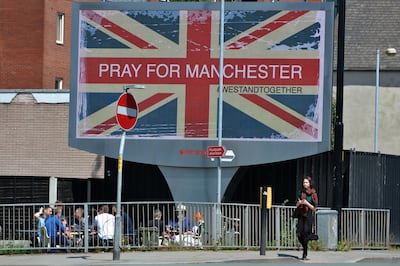Verified incidents of anti-Muslim hate in the UK have doubled in a decade, a new report found.
The report by Tell Mama, which is one of the most comprehensive on the topic, found that there were 584 verified incidents of anti-Muslim hate in 2012, and this number had increased to 1,212 in 2021.
Tell Mama, a UK-based monitoring group working to counter anti-Muslim sentiment and abuse, warned that this trend could point to a real increase in the number of anti-Muslim hate incidents taking place, and not just an increase in reporting.
The report also found that online abuse reached an all-time high in 2020, and that neighbour-related disputes that turned anti-Muslim in nature also increased significantly during the same year.
Over the past decade, Tell Mama has provided support for more than 16,000 reported cases of anti-Muslim bigotry, serving over 20,000 individuals. The group found that online abuse reached an all-time high in 2020, a surge they believe was propelled by the pandemic.
In addition to this online spike, the group also observed a significant rise in neighbour-related disputes that turned anti-Muslim in nature during the same year. Over a quarter of all reported offline incidents fell into this category.
Tell Mama noted that lockdowns during the pandemic seemed to exacerbate household and neighbour-related incidents, acting as a bottleneck for such cases.
In total, 2020 saw 1,318 combined online and offline verified cases.
The highest frequency of verified offline cases occurred between 2016, 2017 and 2019. The group identified these years as periods corresponding with multiple global and domestic events such as the United Kingdom's terrorist attacks, the Christchurch shootings in New Zealand and the Brexit referendum result.

Tell Mama pinpointed that factors contributing to these peaks in anti-Muslim hate included activities of the far-right, global anti-Muslim attacks, political discourse, terrorist activities, grooming scandals and targeted anti-Muslim campaigns.
They highlighted the 2018 “Punish a Muslim” campaign as a major concern, which had caused significant alarm within British Muslim communities.
The continuing Israel-Palestine conflict was reported to have resulted in an sharp rise of anti-Muslim cases in 2021.
Other triggers for spikes in incidents were associated with attacks on asylum seekers and their supporting centres, as well as public figures such as cricketer Azeem Rafiq speaking out about the racist abuse they had suffered.
Iman Atta, the group’s director, asserted that the purpose of this decade-long study was to make people aware of the anti-Muslim hate issue and inspire them to take action.
She emphasised: “This is a decade's worth of data from assisting, supporting and ensuring that British Muslims get access to justice.”
Ms Atta expressed her hopes that the data would motivate more focus on this area of work.
She added that if social cohesion is to be strengthened, anti-Muslim hatred must be challenged, monitored and countered peacefully, requiring collective effort.


